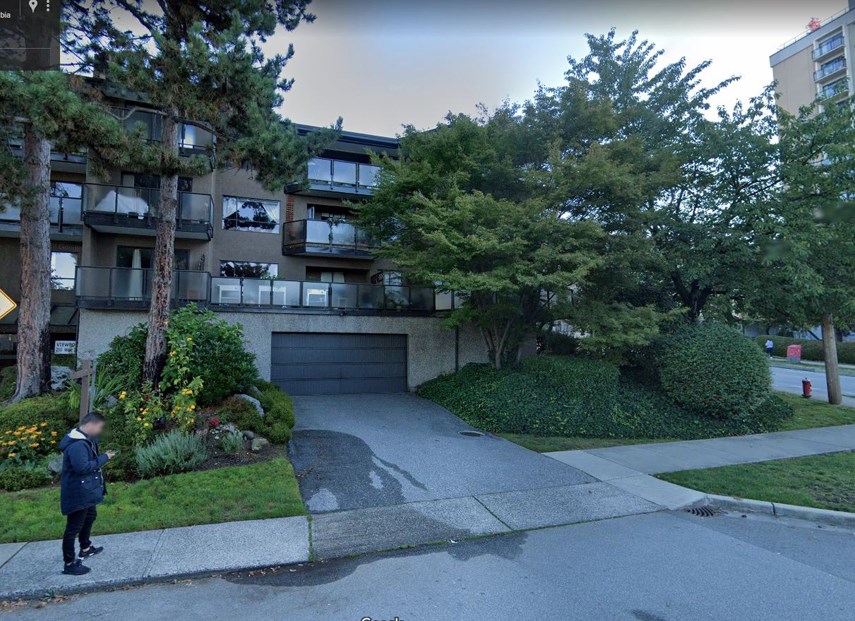A North Vancouver man has been ordered to pay more than $600,000 for driving his van into a window washer’s ladder, causing the victim to fall from the second storey.
The incident happened in August 2015, at a three-storey condo on the 200 block of West Second Street, according to a B.C. Supreme Court ruling released Monday.
Frank Geddert, the 55-year-old owner of Coast Window Cleaning, had placed his ladder so that it was blocking one of the driveway exits from the condo building and put up pylons, a stepladder and bottles of cleaning fluid on either side to let drivers know that exit was blocked. As he was accessing a second-floor balcony to clean the windows, Paul Stokes backed his delivery van out of the parking garage, hitting Geddert’s ladder and causing him to fall, Justice Christopher Hinkson determined.
The fall left Geddert with a fractured skull and traumatic brain injuries, multiple broken vertebrae in his neck and back, broken ribs and a broken collarbone, court documents show.
Geddert was left in a coma for several weeks, according to the ruling. He testified that he had no memory of the fall itself or anything from the six weeks after.
He later sued Stokes, alleging negligence.
Stokes admitted liability, but only partly. Geddert and/or his business also bore some of the responsibility, he argued, alleging the setup was unsafe. Geddert should have been supervised while on the ladder, Stokes added in his defence. The building’s management did post signs warning residents a window cleaner would be present, although Stokes denied ever seeing the notice.
But Hinkson rejected Stokes’s arguments, saying his decision to back out of the garage was the cause of the injury.
The delivery van did not have rear windows, so Stokes was relying on the side view mirrors to guide him out. Hinkson said that was “effectively backing up the driveway blind.”
“(Stokes) gave evidence that based on his prior experience, he believed it was safe to back his vehicle out of the garage as he did on the day of the accident. He was sorely mistaken,” Hinkson wrote. “Either his practice was safe, or it was not, and the absence of any prior problem may have been nothing more than good fortune.”
Even with better signage or supervision, Geddert could not have foreseen someone backing into his ladder, Hinkson concluded.
“I find that it would be unreasonable for the plaintiff to anticipate a driver acting in the negligent fashion that the defendant used to exit the garage, and conclude that he was not obliged to govern himself in anticipation of such negligence,” he wrote.
The judge described Geddert’s recovery since the fall as “little short of miraculous” although he continues to live with some pain, cognitive difficulties and personality changes that may be residual effects of the fall and brain injury.
Geddert testified that he is unable to do jobs that involve heavy lifting anymore, and he gets fatigued quickly, limiting him to 20 to 25 hours of work per week.
After determining liability rested solely with Stokes, Hinkson awarded Geddert $225,000 in non-pecuniary damages, $100,000 for lost earnings plus another $200,000 for loss of future earning capacity, $53,218 for special damages plus another $70,000 for future health-care costs for a grand total of $648,218.



